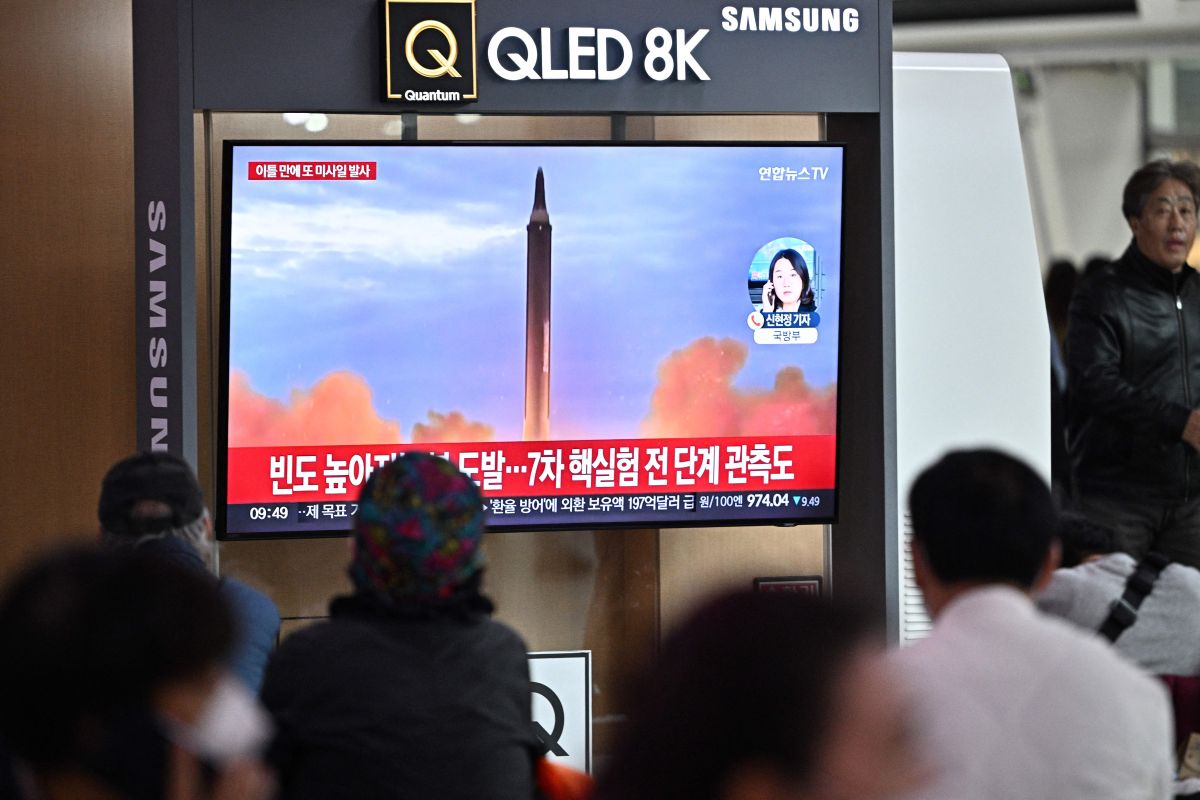North Korea shot two ballistic missiles range into the waters off the east coast of the Korean peninsula on Thursday morning local time, according to the Joint Chiefs of Staff. South Korea, a move likely to heighten tensions in the area after a series of shows. of military might this week, according to CNN.
Originating in the Samsok area of the North Korean capital Pyongyang, according to the South Korean statement, this was North Korea’s sixth ballistic missile launch event in the past two weeks.
South Korea, too, is closely watching a highly provocative launch by the isolated country on Tuesday, when North Korea fired a ballistic missile without warning at Japan, the first in five years, prompting Tokyo to urge residents to take refuge.
The United States and South Korea responded with missile launches and exercises on the Korean peninsula on Tuesday and Wednesday.
Speaking Wednesday during a trip to South America, US Secretary of State Antony Blinken warned that if North Korea continues “down this path” of provocation, “it will only increase condemnation, increase isolation, and increase the steps that are taken in response to their actions.”
Last month, the US, Japanese and South Korean navies held joint anti-submarine exercises in international waters off the east coast of the Korean Peninsula, to enhance response capabilities against North Korean submarine threats.
The USS Ronald Reagan aircraft carrier and its carrier strike group, as well as destroyers from South Korea and Japan, participated in the joint exercise, according to the South Korean Navy.
Pyongyang on Thursday accused the United States of contributing to tensions on the Korean peninsula and called its own launches reactive.
Experts have warned that recent tests from North Korea suggest that an even greater escalation in weapons testing could be on the horizon.
“North Korea will continue to conduct missile tests until the current round of modernization is complete,” Jeffrey Lewis, director of the East Asia Nonproliferation Program at the Center for Nonproliferation Studies, told CNN earlier this week.
A nuclear test could happen “at any time,” Lewis added.

